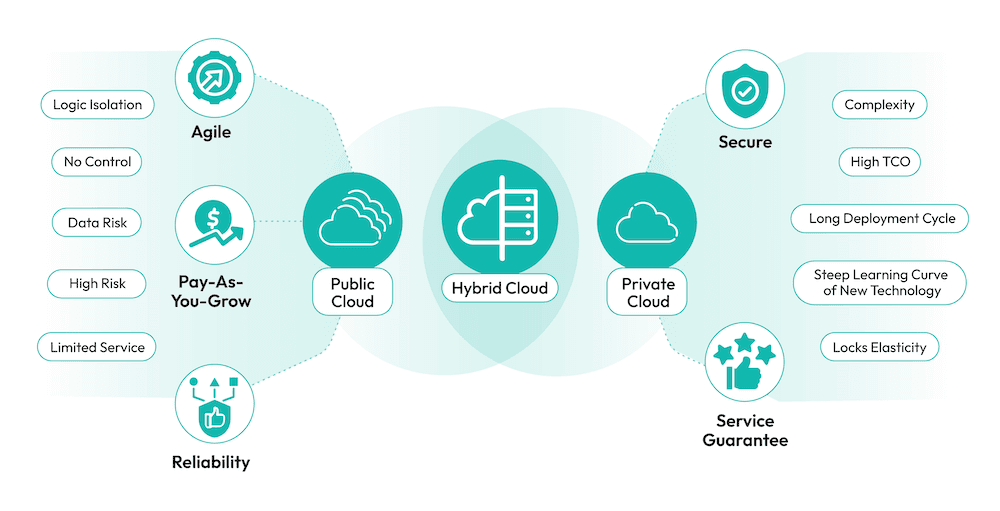Hybrid Cloud
The Best of Both Worlds: Experience Scalable Synergy with Hybrid Cloud
Enjoy the flexibility of Cloud with the security and control of physical servers. Suitable for all types of businesses.
Why Choose TheGigabit's Hybrid Cloud
Agility & Business Scalability
A hybrid cloud supports modernization by bridging existing on-premise infrastructure with modern public cloud services, ensuring continuity during the transition.
Regulatory Compliance
A hybrid cloud enables compliance while reducing costs by keeping critical data in-house and leveraging the scalability of the public cloud.
Cost Management
Private cloud demands high upfront costs, while public cloud can bring unexpected charges. A hybrid cloud provider helps strike the right balance for your business needs.
USE CASES - Hybrid Cloud Computing

Click-To-Mortar Businesses
Blend physical and digital storefronts with hybrid cloud. Businesses can extend into e-commerce while keeping critical operations secure on-premises — gaining cloud scalability without losing their private infrastructure.

Legacy Systems
Modernize without risk. Hybrid cloud lets you run apps with the latest infrastructure on cloud while letting you use legacy applications on custom compatible hardware on the private end.

Disaster Recovery
Ensure business continuity. Hybrid cloud backups across private and public clouds allow seamless failover in case of server failures, cyberattacks, or outages — minimizing downtime and data loss.

Development and Testing
Accelerate innovation. Test and develop software in a public cloud environment without costly physical setups. Deploy faster, scale easily, and lower development costs before moving to private infrastructure.

Load Balancing
Handle traffic spikes effortlessly. Hybrid cloud enables you to offload workloads to the public cloud when your private systems are at capacity, ensuring smooth operations with minimal disruption.
Benefits of Hybrid Cloud
Hybrid Cloud is a computing environment that combines the benefits of both public and private clouds, allowing data and applications to move seamlessly between them. This approach offer a great flexibility, optimized performance, and enhanced control - making it ideal for business that need to balance scalability with security and compliance.

Public Cloud
What it offers
Elastic Scalability
Innovation Access
Cost Flexibility
Global Reach
Private Cloud
What it offers
Data Sovereignty & Compliance
Customization
Security & Control
Performance Predictability
Legacy Integration
Frequently Asked Questions about Hybrid Cloud
Contact Us for a Free Consultation
Contact us to leverage 17+ years of expertise and unwavering 24/7 support for tailored solutions - built just for you.


